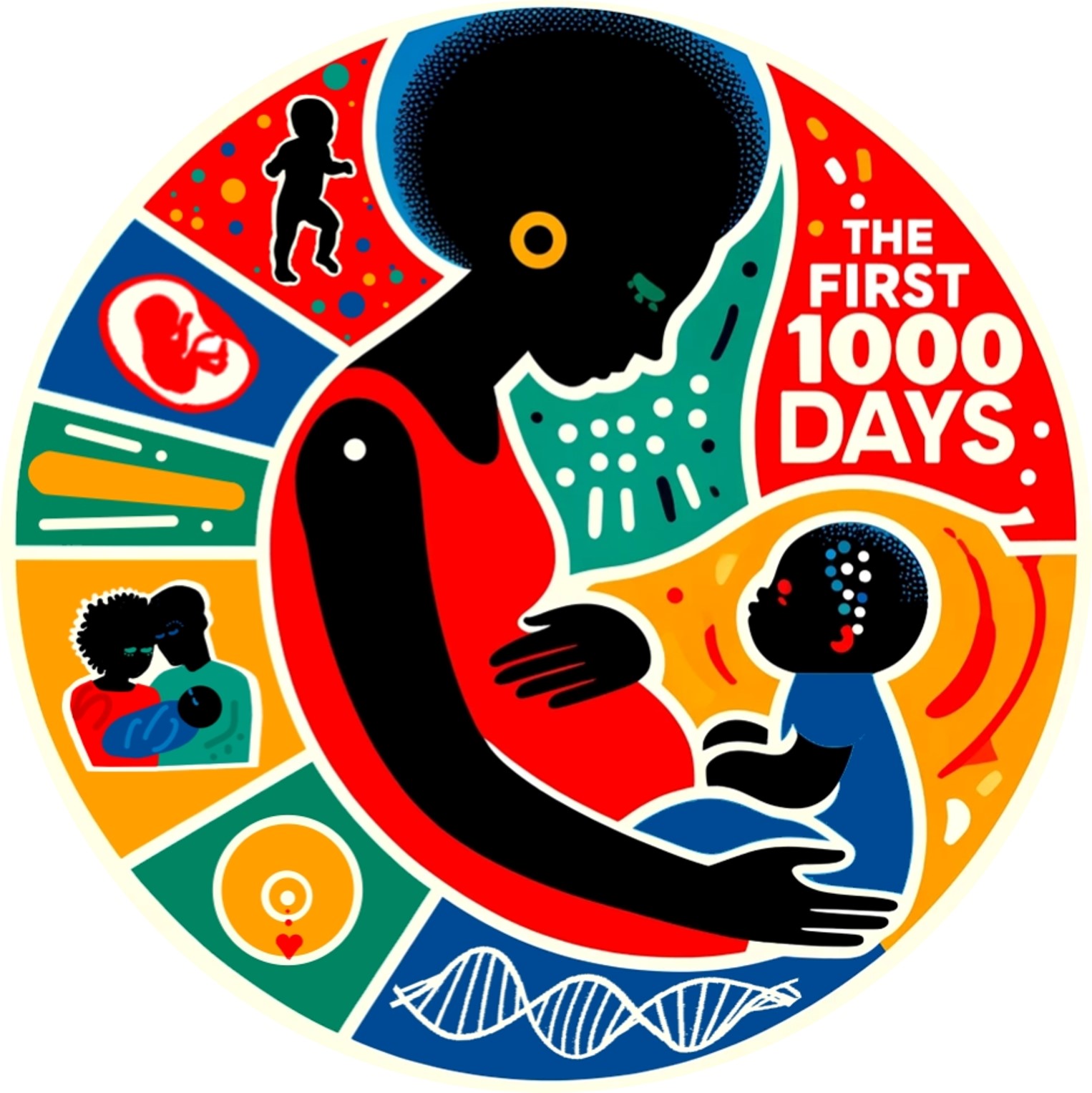Far too many babies are born into the world too soon or too small. The University of Pretoria’s Professor Ute Feucht’s research underscores the urgent need for improved maternal and child health interventions to ensure a healthier future for all.
Pretoria, South Africa (11 October 2024) – The first 1,000 days of a child’s life are crucial to its health, growth and development. A lot of what happens from the moment of conception to the child’s second birthday determines just how well he or she will thrive in the future. This is according to Professor Ute Feucht, a leading expert in maternal and child health based at the University of Pretoria (UP).
She shared a wealth of knowledge about how placental function, maternal health and early childhood factors influence lifelong health outcomes.
The impact of placental insufficiency
In her inaugural address, Feucht, who is the Director of UP’s Centre for Maternal, Fetal, Newborn and Child Health Care Strategies, shared how foetal growth restriction, caused by complications with placental function, can lead to serious consequences such as stillbirths, neonatal deaths, and long-term health issues like diabetes and hypertension.
Prof Feucht added that data from the South African mortality auditing programmes in the public sector health facilities shows that most stillbirths occur mainly in apparently low-risk pregnancies and are coded as “unexplained stillbirths”.
In addition, most stillbirths are antenatal, not intrapartum, and thus not linked to the quality of care the mother receives during delivery.
The influence of maternal HIV
Feucht also drew data from the Siyakhula study, which examined HIV-exposed uninfected infants in South Africa.
The study found that even when children remain uninfected with HIV, maternal HIV infection can negatively impact their growth and development due to changes inside the uterus.
“The Umbiflow studies, which used Doppler ultrasound technology to assess placental blood flow, showed the potential for this technology to prevent stillbirths and identify at-risk pregnancies,” Prof Feucht said.
“The studies, conducted across South Africa and other low- and middle-income countries, revealed alarming rates of placental insufficiency in seemingly healthy women. The prevalence of abnormal Dopplers – indicating insufficient blood flow to the foetus – was found to be 10 times higher in these low- and middle-income countries compared to high-income settings.”
The first 1,000 days
Prof. Feucht stated that 80% of a baby’s brain growth takes place within the first 1,000 days, which is the period from conception to the child’s second birthday.
“This is a time of tremendous potential and enormous vulnerability, where the foundation for future health, growth and neurodevelopment is laid,” she said.
“Poor foetal growth and development during these early stages, particularly due to conditions like foetal growth restriction, can lead to life-long disadvantages.”
Prof Feucht went on to draw attention to the developmental origins of the health and disease hypothesis, which suggests that a foetus makes genetic adaptations in response to its environment.
These adaptations, while initially protective, may predispose an individual to chronic diseases in adulthood if the predicted environment doesn’t match reality.
When it comes to postnatal care, particularly for vulnerable infants born to mothers living with HIV, or those experiencing placental insufficiency, Professor Feucht shared findings from the UmbiBaby and UmbiGodisa studies.
These studies found that children exposed to both HIV and placental insufficiency were at significantly higher risk for stunted growth and cognitive delays.

Going forward
To identify and address these risks, Prof Feucht called for better integration of care for mothers and infants in South Africa’s healthcare system.
“Streamlined, holistic care for both mother and child at primary healthcare centres would reduce the number of visits needed for family planning, HIV-related care and routine infant check-ups and immunizations, ultimately leading to better health outcomes for both,” she said.
Professor Feucht closed her lecture by quoting a recent Lancet report, which stated:
“The fact that every fourth baby in the world is born too soon or born too small is a concern for human rights, public health, the national economy and development.” Addressing this issue, she added, is vital for ensuring a healthier future for all.
Sources: University of Pretoria
Don’t ever miss the Good Things. Download the Good Things Guy App now on Apple or Google.
Do you have something to add to this story? Please share it in the comments or follow GoodThingsGuy on Facebook & Twitter to keep up to date with good news as it happens, or share your good news with us by clicking here or click the link below to listen to the Good Things Guy Podcast with Brent Lindeque – South Africa’s very own Good Things Guy. He’s on a mission to change what the world pays attention to, and he truly believes there’s good news around us. In the Good Things Guy podcast, you’ll meet these everyday heroes & hear their incredible stories:
Or watch an episode of Good Things TV below, a show created to offer South Africans balance in a world with what feels like constant bad news. We’re here to remind you that there are still so many good things happening in South Africa & we’ll leave you feeling a little more proudly South African.

